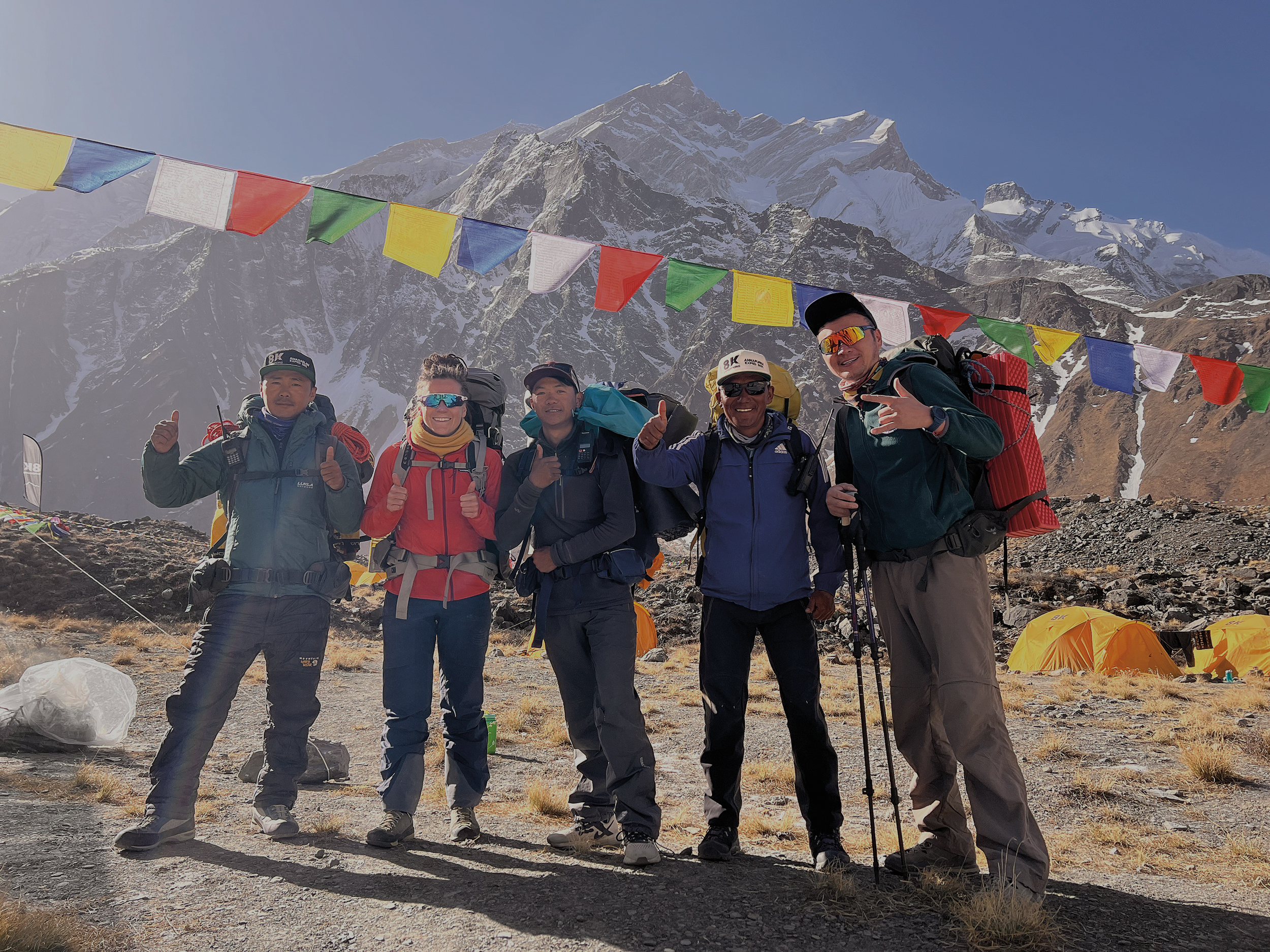
Kristin Harila, a realist utopist
“Every activist needs to be a dreamer, a utopian, a maximalist… As we face violence, attacks, misconceptions and stigmatisation, we need to have strength to stand up again and again. We need to dream that we can make the world better if we want to be able to continue the fight.” – Inna Shevchenko, Femen leader
Why, speaking of the adventures of Kristin Harila, many feel the need to specify that she has blue eyes, blond dreadlocks and a wonderful smile, while nobody gives a damn about how Denis Urubko looks like but only about what he does? Why there is the need to specify that she’s a female mountaineer? Because the mountain world is still extremely misogynistic. Yet there are more and more women who go to the mountains and obtain incredible results. Courtney Dauwalter, Laura Rogora, Silvia Vidal, just to name three. However, in most of the R&D departments of outdoor brands there are only men, convinced that all women go crazy for fuchsia. It ends up that if you set your mind on breaking the speed ascent world record of all the fourteen eight-thousanders on Earth, but you are a woman, finding a high altitude suit of your size becomes insane, because there are only sizes for man. And so you have to have it custom made, and then work a lot to find a sponsor to support you. Exactly what happened to Kristin Harila, who recently joined the SCARPA team.
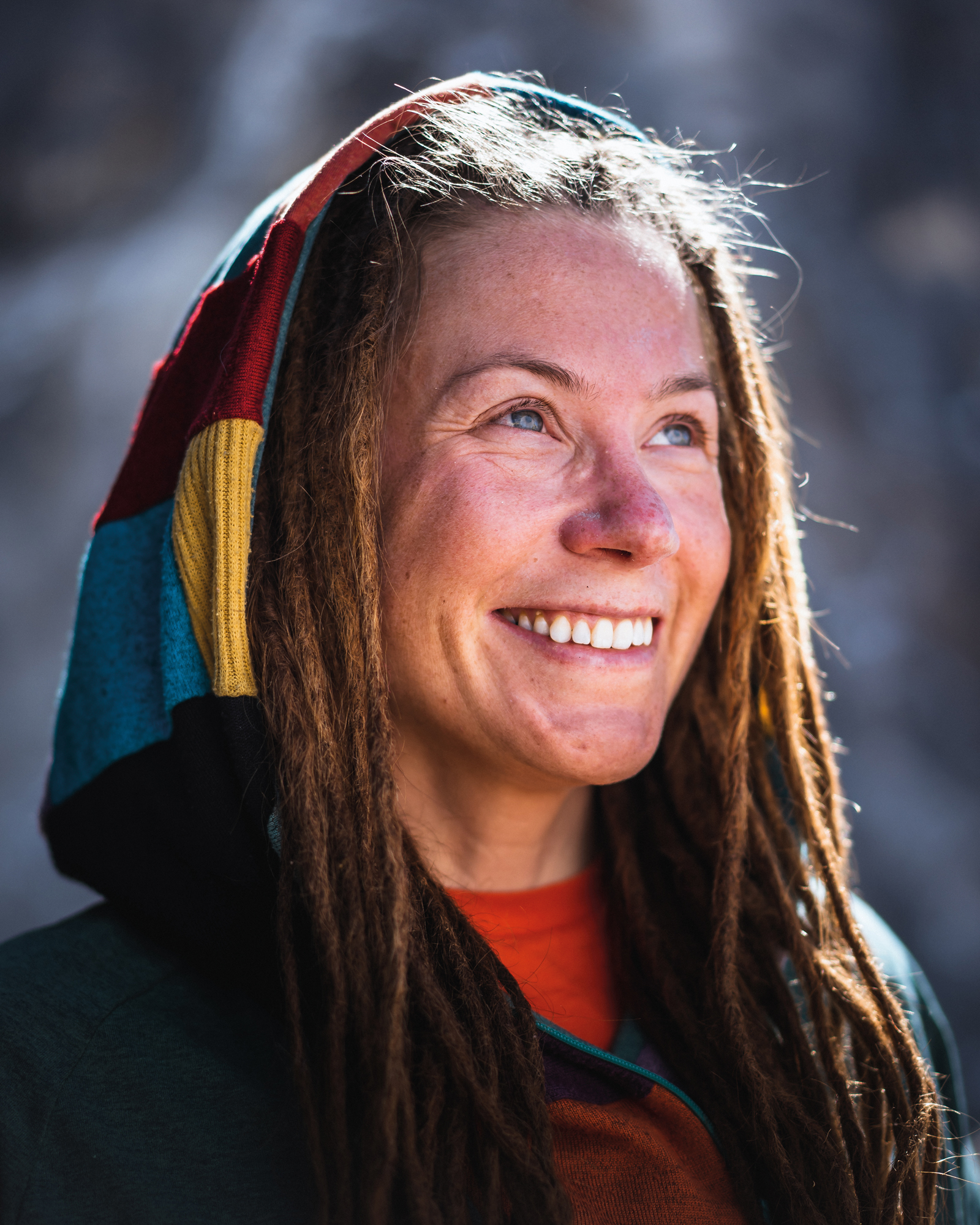
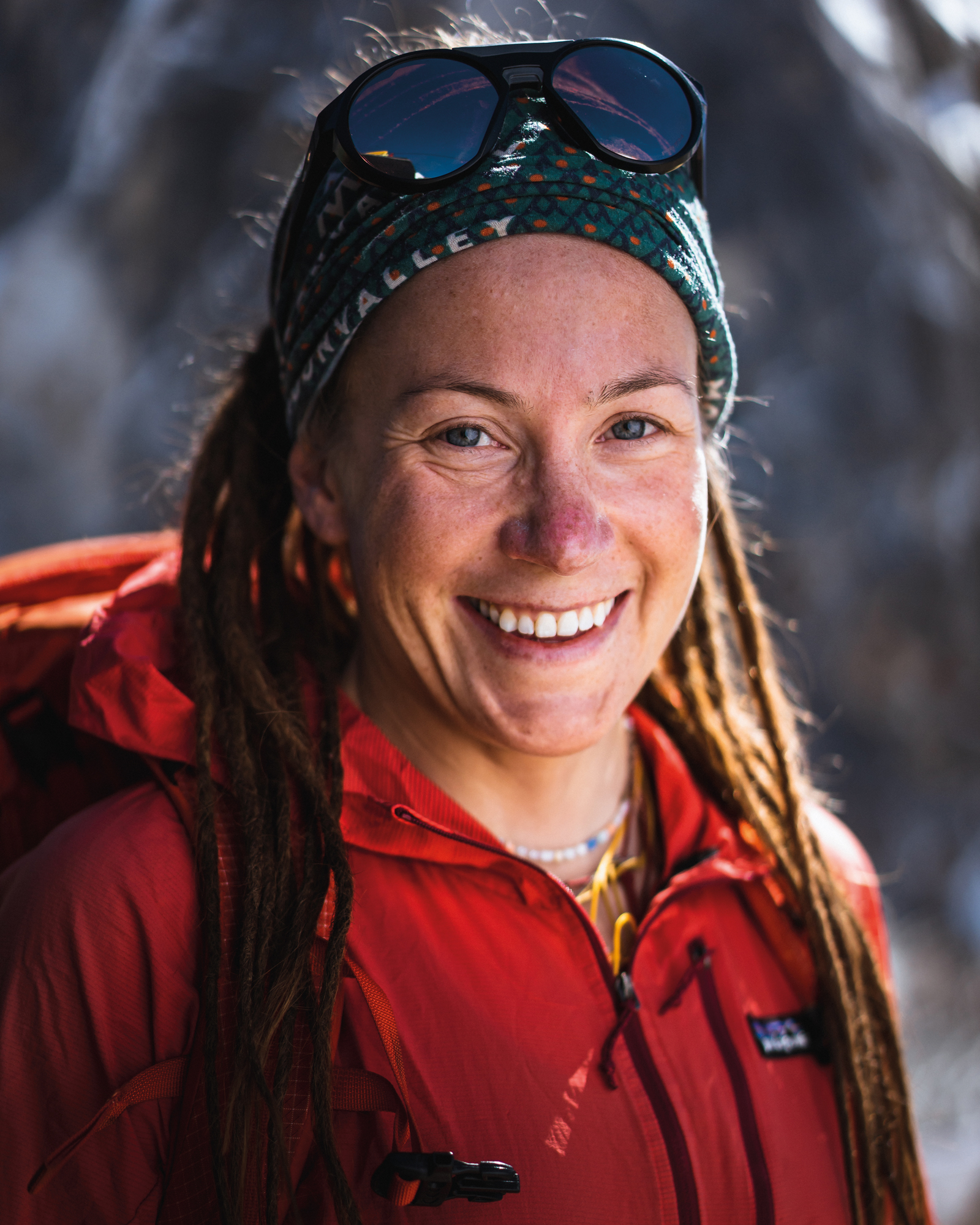
Tell us something about you. Taboo words: mountains and mountaineering.
My name is Kristin, I’m 36 and I’m from the north of Norway. This year I climbed twelve eight-thousanders. When I was younger I played soccer and volleyball and I always practiced a lot of physical activity. I competed as a pro athlete in cross-country skiing until 2009, when I discovered the world of mountain running and ultrarunning, which I fell in love with. In 2015, thanks to my work, I won a trip to Kilimanjaro, and I decided to climb the highest mountain in Africa. In 2019 I quit my job (the best choice taken in my whole life) and decided to take a gap year to go mountaineering. I flew to Nepal, where I climbed Putha Chuli (7246m). Then I climbed Aconcagua (6962m), in Argentina, and did some ski mountaineering expeditions. Then came the pandemic. I took the opportunity to train, and in 2021, as soon as I could, I climbed Everest and then Lhotse in just 12 hours, setting a new female record. I also started planning my own project: to become the first person in the world to climb the world’s fourteen peaks above eight thousand meters in less than six months, and to achieve this I sold everything I had. Furthermore, due to the difficulties I encountered, I was able to see first hand how the outdoor industry is still very far from gender equality.
You don’t have neither a home nor a boyfriend. What are you learning from your alternative lifestyle and from extreme sports in contact with nature?
Actually when I started this project I had a boyfriend but our relationship ended because I was always in the mountains. It’s not easy to be together when you’re always traveling on expeditions. I love my lifestyle and being in contact with the mountains, but that’s also tough, there are some very tough days. However, I find life more difficult when I come down from the mountains, when I’m at home and I have to find sponsors for my projects.
Is mountaineering only for selfish people?
I don’t think so. As far as I’m concerned, I’m a mountaineer because I love climbing mountains but also because I want to change something in this world. During this last year I have worked with many outdoor brands and realized how far we are from having gender equality. We think we have achieved a good level of equality, we think we respect women’s rights, while there’s still a long way to it, even here in Norway. When I have to look for a sponsor it’s very difficult, most of the outdoor brands only support male athletes and produce mountaineering clothing only for them. That’s why I decided to use my eight-thousanders project to have the opportunity to sit down with the brands and ask why this world is still so sexist. There are more and more women climbing and the community is going in the right direction, but I think there is still a long way to go, especially with companies. Why, with a project with an equal goal, does a man count more than a woman? Mountaineering is not just about me, it’s about something more important.
Is mountaineering about avoiding pain or seeking pain? Is it a search for suffering or for beauty?
For me it means living life in close contact with nature but also being able to reach the top. For this reason it is essential to be highly motivated under different points of view. If you decide to undertake certain projects you must be aware that they involve a considerable amount of suffering. You need to know that you will feel uncomfortable for a long time.
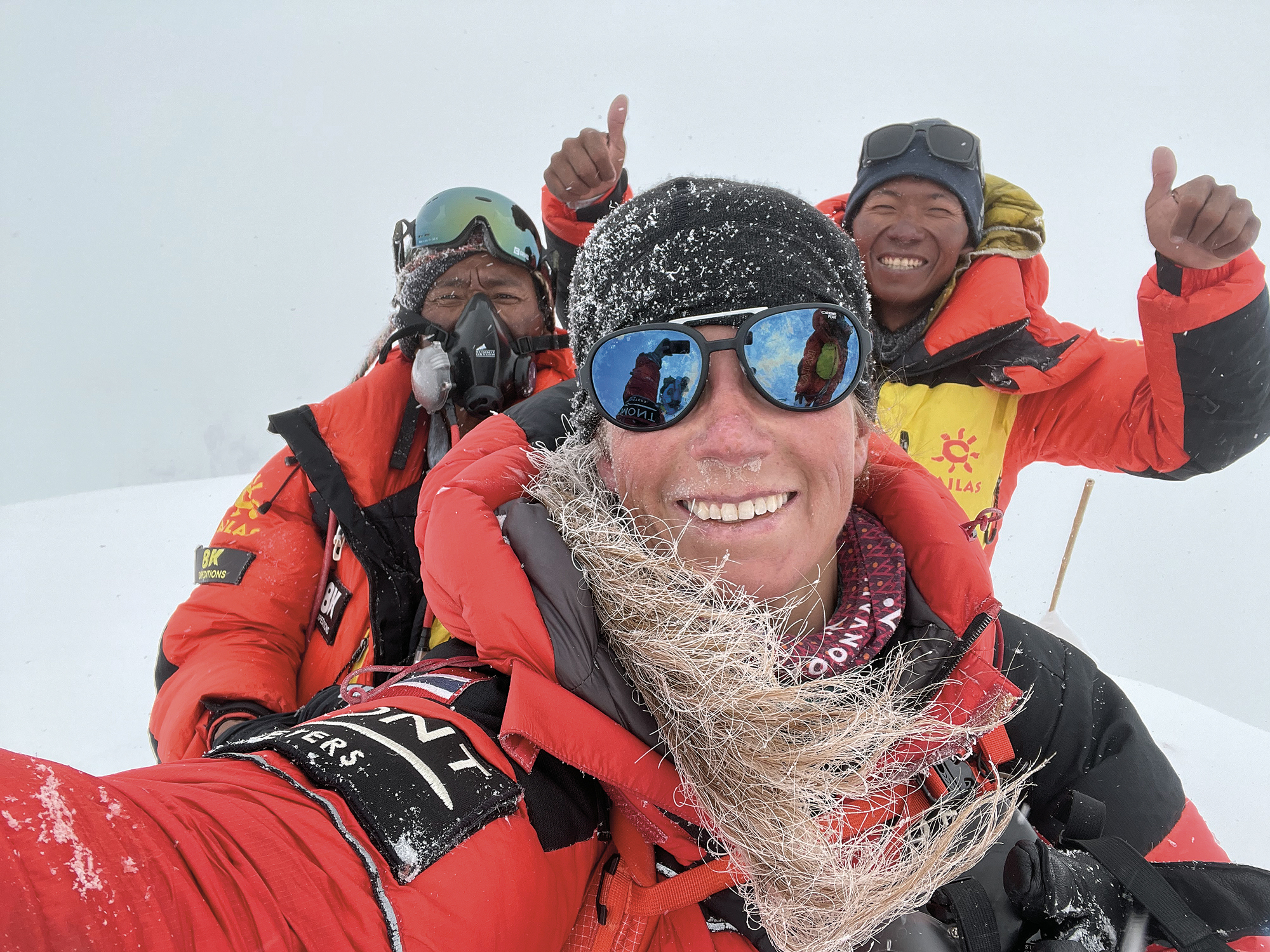
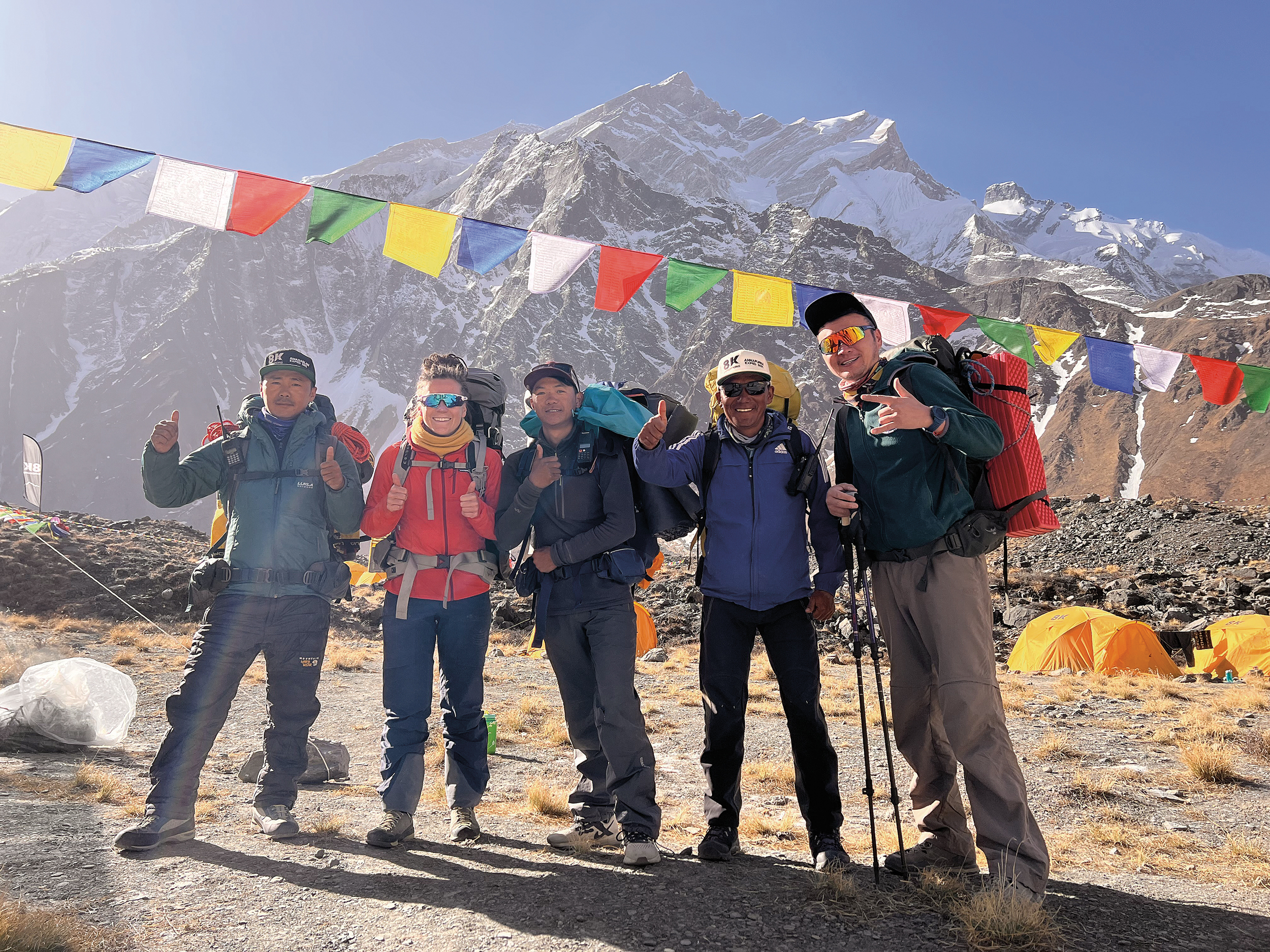
You were about to become the first person in the world to climb the fourteen peaks of the earth above eight thousand meters in less than six months, beating the previous record held by Nirmal Purja who, in 2019, with his Project Possible 14×7 (14 peaks in 7 months) had been the fastest climber. You were three days ahead of the previous record, what went wrong?
From Manaslu, the last of the twelve eight-thousanders I’ve climbed, we had another five weeks to beat the record and we started the process to obtain permits to climb the last two mountains, which however were denied by China, forcing me to give up my goal, despite the efforts I also made with the Norwegian government and the climbing community. But I’m not going to give up! I’ll try again next year, starting from the two eight-thousanders I’ve left, Cho Oyu and Shisha Pangma, and then climbing back up to the other twelve, trying to make it in five months. I think it’s possible, for sure we need permits and we have to be lucky with the weather.
Logistically how did you face the climbs?
The whole planning part, from the search for sponsors to the request for permits, was really difficult. But I think next year will be better, I know the procedures and the mountains and I think I’ll be able to move more easily.
With what style did you face the eight-thousanders?
During this project I climbed with the help of Sherpas and using oxygen, but it was different from mountain to mountain, on some of them I found fixed ropes, in others not. Next year, however, I intend not to use oxygen. In general, I believe that everyone can do mountaineering as they wish, the important thing is to be honest about what they use.
Beyond the interest in the mountains, how much did achieving a record and its subsequent recognition count in proportion?
I love climbing mountains, but it is essential that there are several reasons that lead you to undertake a project such as that of the one of the eight-thousanders, recognition alone is not enough. The record is important, because it helps you find sponsors who support you.
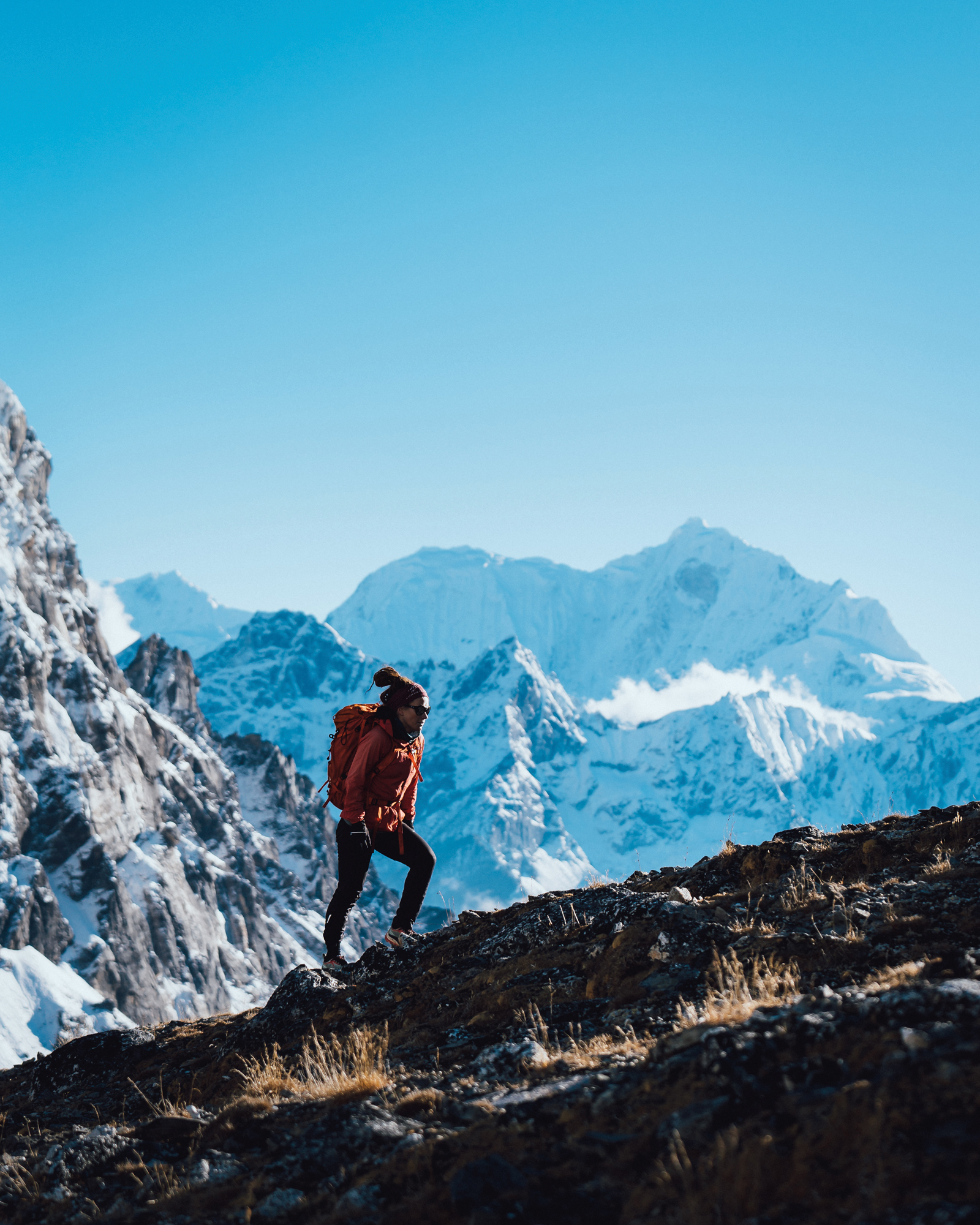
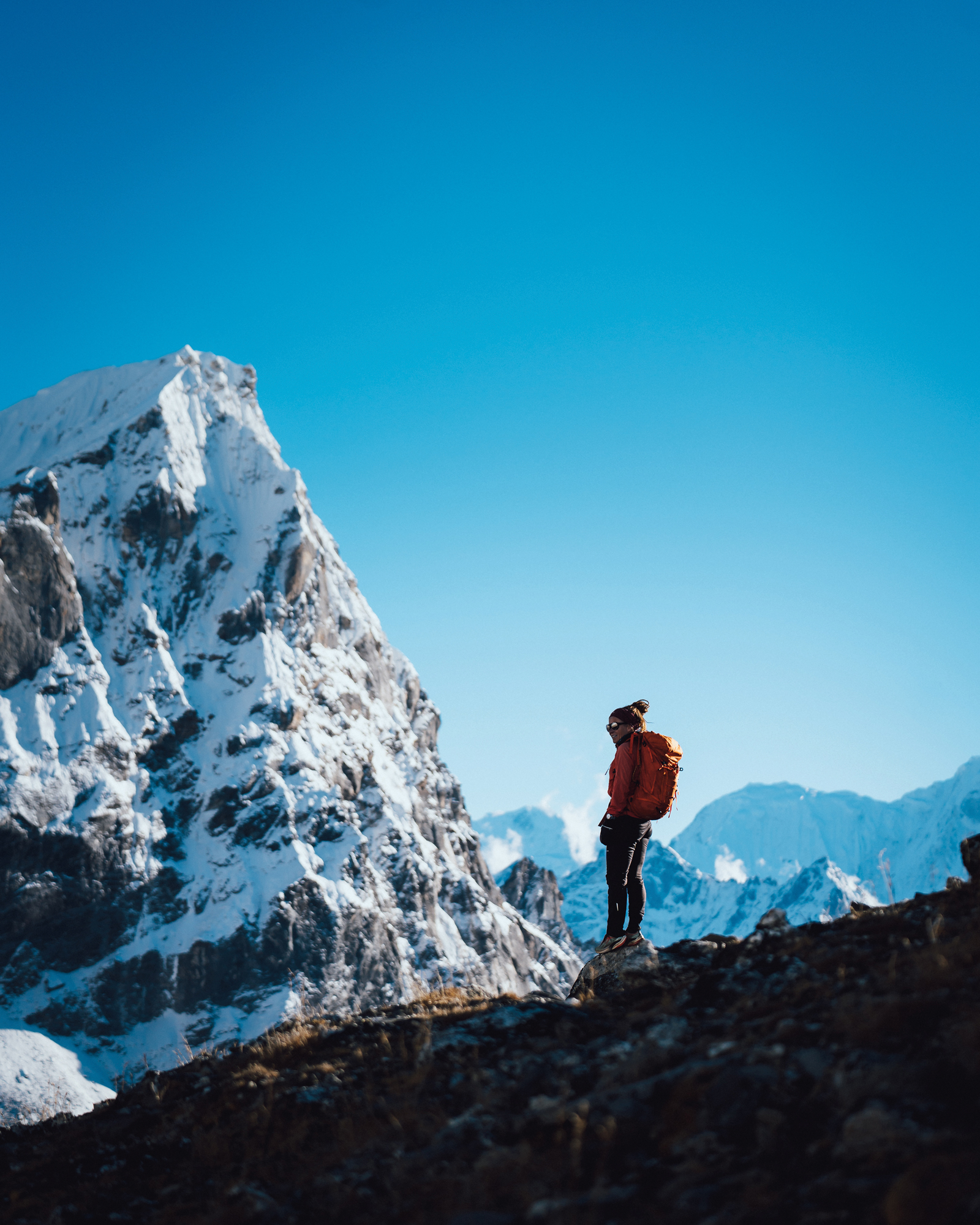
You climbed Everest and Lhotse in 8 hours and half, both in the same day. The evolution of mountaineering is increasingly marked by lightweight and speed, but what’s the point in climbing a mountain at high speed? Isn’t there a contradiction with the new prospective of seeking greater harmony with the rhythms of nature? Is there a risk of multiplying risk factors?
For safety reasons it is good to be fast, the longer you stay on the mountain the more you are exposed to risk factors. Certainly a project like the one of the eight-thousanders is special, because it focuses on time, there is a lot of pressure and you have to be fast. I feel the need to experience some adventure where performance doesn’t have all this importance, I think that after the eight-thousanders project I will take some time to do it.
During your mountaineering expeditions, how have you seen the mountains change due to climate change?
It was really hot in Pakistan this summer, and we noticed some changes, especially in the glaciers, where we found many crevasses and avalanches. Even the monsoons in Nepal came earlier than usual, which is absolutely abnormal.
Do you think the mountain is for everyone or just for a few people?
I believe that people must be adequately prepared, under different points of view. They have to be trained, experienced and take one step at a time. In general, however, I think it’s positive that more and more people are looking for a life outdoors, going to the mountains and deepening their passion for nature.
What is the role of mountaineers in raising public awareness about the coming ecological disaster?
I believe that everyone can do something positive to change the system and play an active role in protecting the environment. For now, I’m trying to do what I can to reduce my footprint and emissions, but after the eight-thousander project, I’d like to be more active on this issue and to encourage people to reflect on the phenomena I see during my activity as a mountaineer.
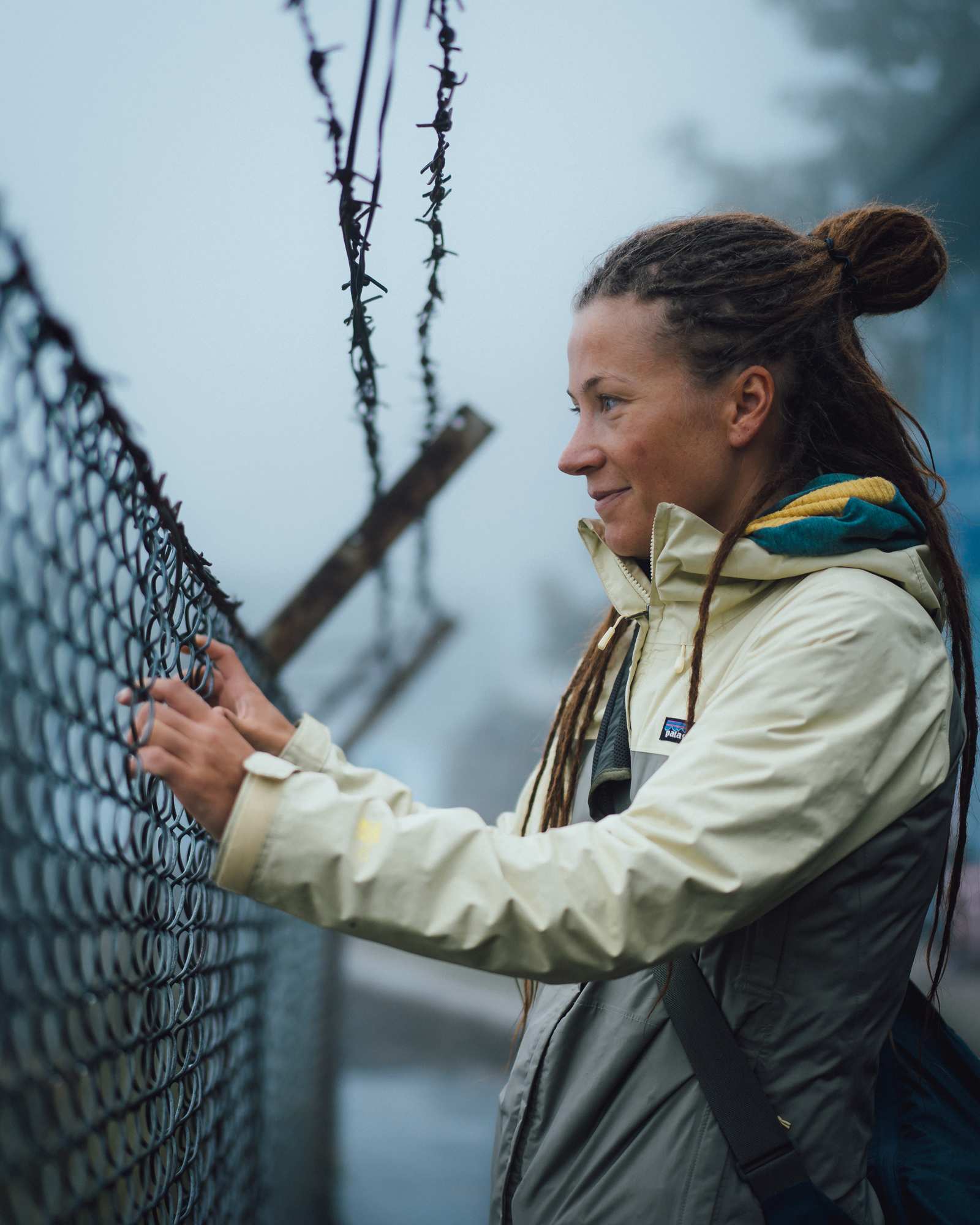
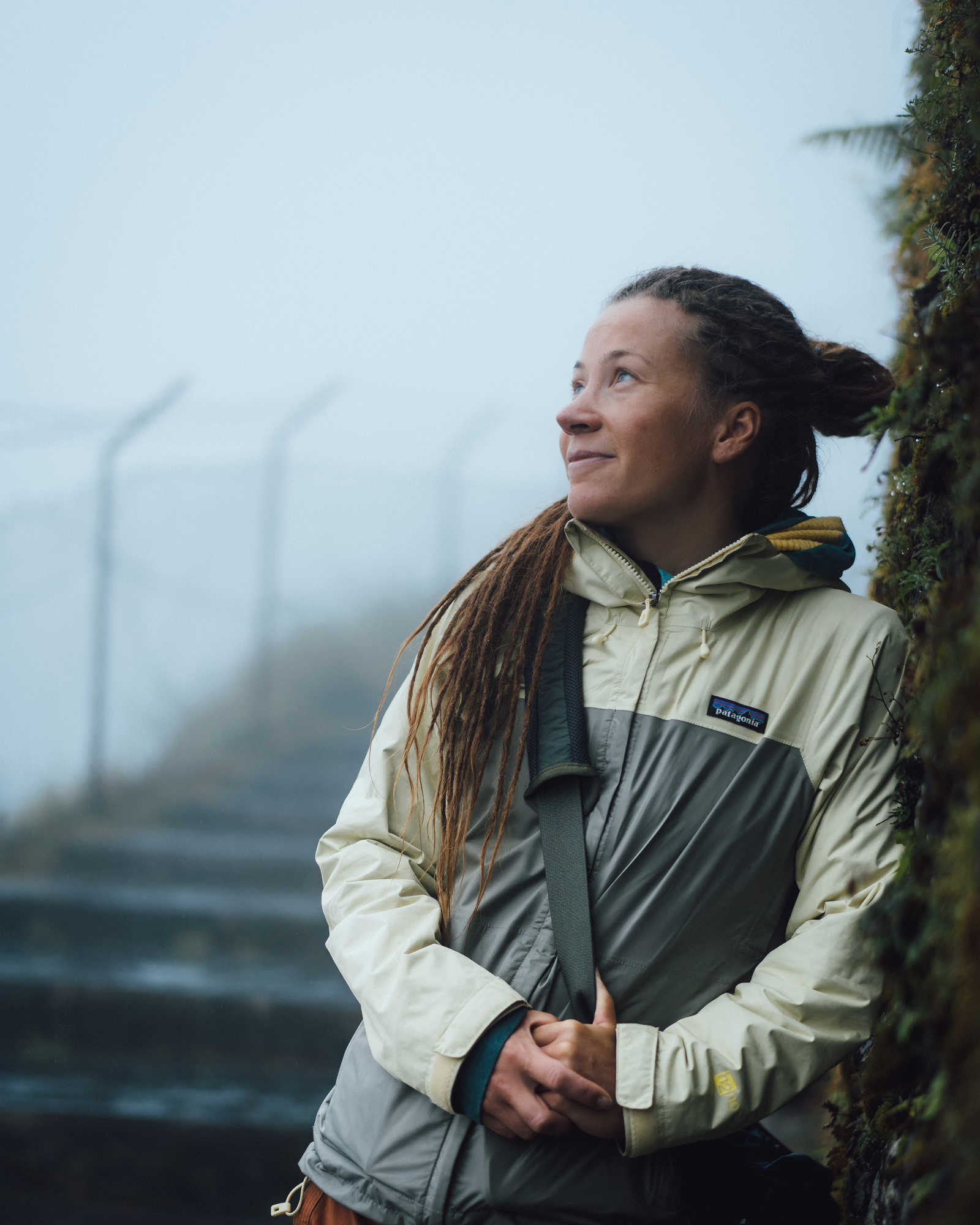
Do you think it’s possible to climb an eight-thousander in a sustainable way? Did you take many planes for your project?
Yes, I think it’s possible, it seems to me that there is a greater sensitivity about it, for example it is mandatory to bring the oxygen cylinders back downhill and there are fines for those who don’t, but certainly we can do better, be more careful, create less waste and always bring down what we find. The world of communication has a considerable responsibility, it is important that there is adequate information. I try to take as few flights as possible but some are unavoidable if you want to achieve certain goals.
Would you define mountaineering as a privilege?
Yes, I think I’m very lucky to be able to live this life. Most people don’t get the chance to be able to travel all that time.
Are you afraid of dying in the mountains?
No. There have been situations where I thought I was about to, but I think the most important thing in life is to do what we like. I don’t think about death.
Climbing an eight-thousander as a woman or as a man is the same?
I believe that women are just as strong as men, so there is no difference.
Do you think you’re inspiring people?
I hope so, I like the idea of motivating women to climb mountains and do what they really want. I receive a lot of positive feedback from women, but also from men, and I must say it’s a great satisfaction.
How do you imagine the mountaineering of the future?
I hope there will be some progress regarding gender equality, it seems to me that we are moving in the right direction.
If you look out the window, what do you see?
It’s already dark here in Oslo! But yesterday it snowed and it was very nice.
Who will you be in a hypothetical next life?
I don’t think there is another life, life is now.